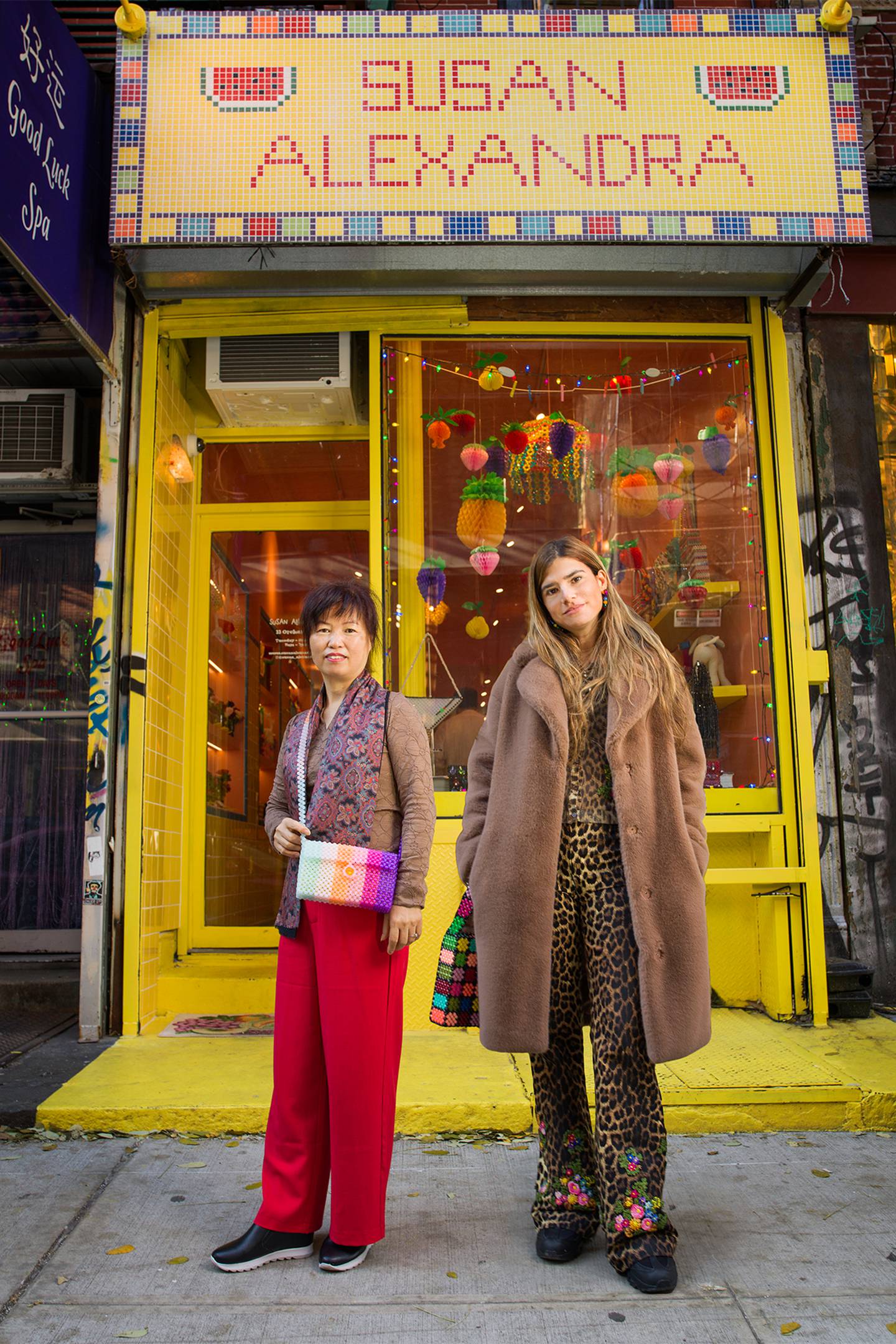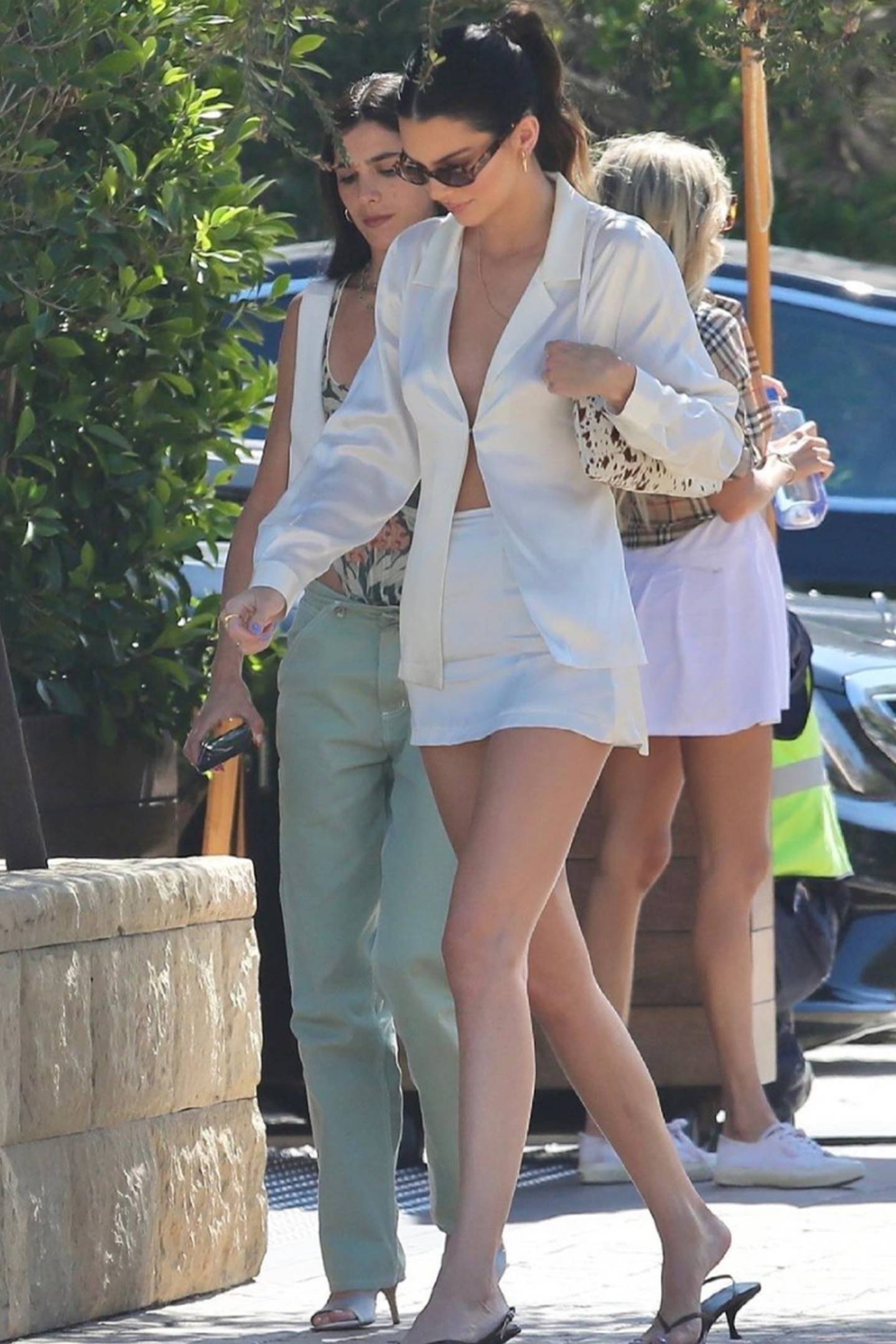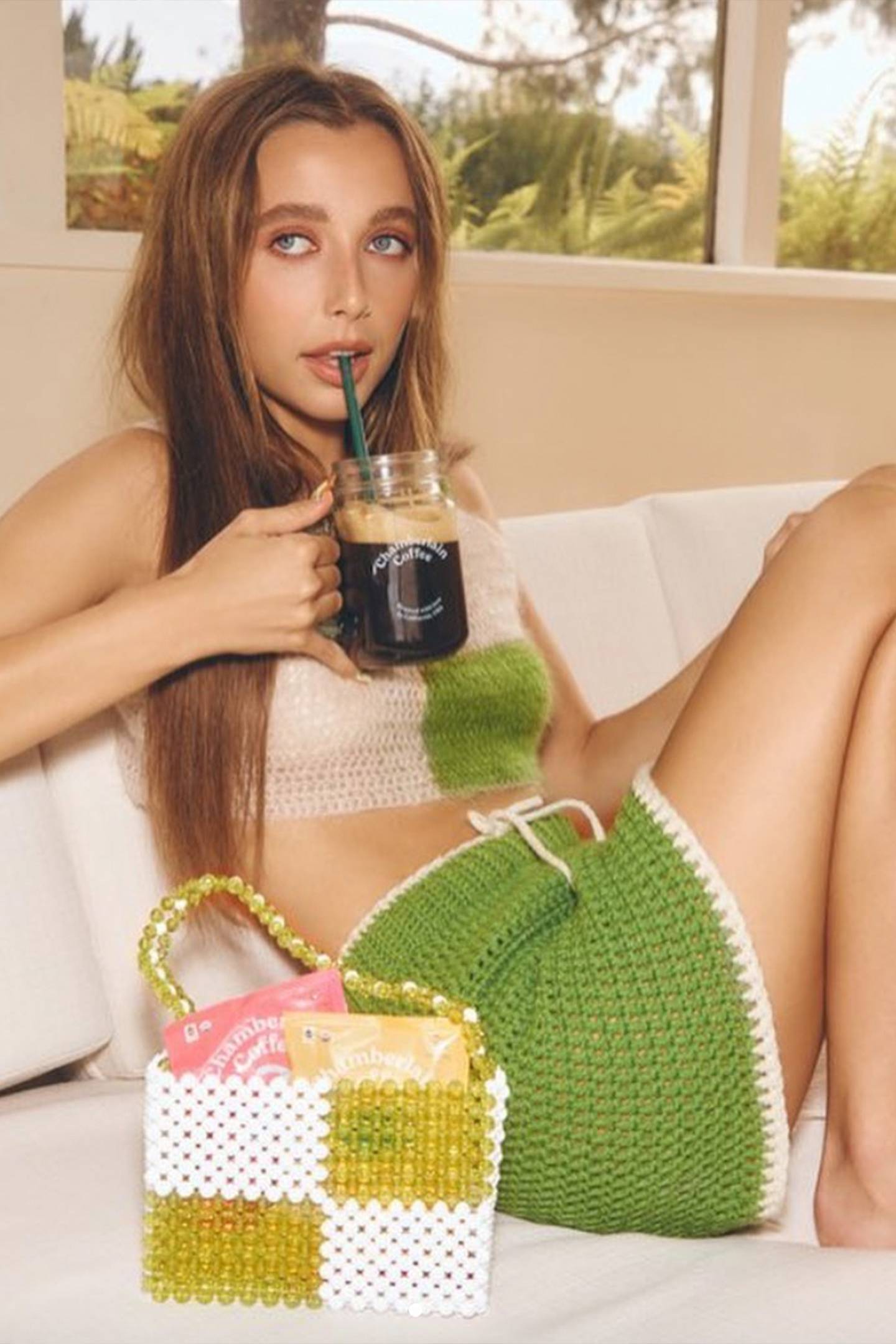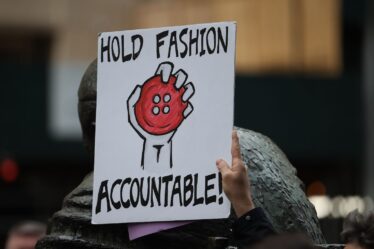
NEW YORK — Like many fledgling fashion labels, Susan Alexandra and Mirror Palais found traction with Instagrammable designs sold directly to consumers. But both brands have also adopted a less common strategy that leans into made-to-order manufacturing right here in New York City.
In June of 2018, while strolling in Chinatown, designer Susan Korn spotted craftswoman Lisa Deng beading an animal-shaped keychain. Taken by its cuteness, Korn, then focused on jewellery, took a leap and commissioned Deng to create a rectangular watermelon bag from sparkly Tetris-like beads.
In just three years, Korn has parlayed the success of that single item, an instant hit with the likes of YouTuber Emma Chamberlain and model Emily Ratajkowski, into Susan Alexandra, a young label that has sold more than 15,000 bags, priced between $250 and $850 each.
The business grew by 45 percent this year and, last month, opened its first store on a trendy stretch of Orchard Street. But its wares are still made-to-order in New York by one of 40 women managed by Deng, many of them immigrant mothers whose children attend Deng’s daughter’s former Chinatown elementary school and who work part-time from home.
That means customers — “funky outsiders” in their 20s who “live on Instagram and Tik Tok,” according to Korn — have to wait up to three weeks for their orders, a challenge in a culture of instant gratification. But on the flip side, the brand only produces what customers actually pay for, eliminating the kind of business risk that can destroy a young label.
Korn drops new products monthly and is able to take new designs to market in only a week, allowing her to adjust her offering accordingly.
Mirror Palais, a young womenswear label launched on Instagram by stylist turned designer Marcelo Gaia in 2019 and known for its flirty underwire bra-tops, has also used made-to-order local manufacturing to get off the ground. The Queens-raised designer produces only one collection a year, releasing items in two-week pre-order windows roughly four times a year, tweaking the designs with each release.

“I’m making high-end contemporary clothing with silks and vintage fabrics. They’re expensive. And the labour cost for some of these pieces, because they’re made here in New York, is high. So I couldn’t justify making ‘x’ amount of any garment without really knowing if they’ll sell,” said Gaia.
Mirror Palais’ customers must wait six to eight weeks for goods produced by the brand’s local factories in the Garment District, most of which Gaia found on Craigslist. But the model has worked.
Today, the label, which sells $100 printed bikinis and $795 silk dresses, is a favourite of Instagram ‘it’ girl Jen Ceballos, singer Dua Lipa, entrepreneur Kylie Jenner and model Bella Hadid. The business is on track to generate $2 million in revenue this year.
Pre-order is by no means a new model. Recently, Telfar Clemens has put the approach to use with his “Bag Security Programme.” But this non-traditional strategy is gaining traction with more young designers, some of whom, like Korn and Gaia, also see an opportunity to operate more sustainably.

“I have always been super interested and concerned about environmental stressors,” said Korn.
“It’s against all the rules. There’s patience. There’s slowness,” said trend forecaster Li Edelkoort. “But lots of young consumers also want things to change. So when they know that it’s made to order, then they will exchange their patience for the planet. That’s a good deal, right?”
Can the model scale?
In search of growth, both Korn and Gaia are now working with major third-party retailers: Susan Alexandra with Nordstrom, and Mirror Palais with Ssense and Selfridges.
For Korn, this isn’t her first time. In fact, she almost went out of business during the pandemic when her retail partners cancelled orders, recovering only after pivoting to her direct, pre-order model. But this time around, she is negotiating upfront deposits and limiting her wholesale exposure. Currently, wholesale makes up 10 percent of her business.
“The best thing for me is to focus on my own website,” said Korn. “There has to be a way to make this scale.”
For Gaia, working with retailers is an “experiment” that he also plans to limit. “The success of the business comes from my direct relationships with my customers and my relationships with the people that I work with,” he said.
Ultimately, he’s happy operating at a small scale and looks up to the likes of Azzedine Alaïa. “It has to have integrity. And I don’t think it’s possible to do that in large quantities. I think the world needs more quality over quantity.”


